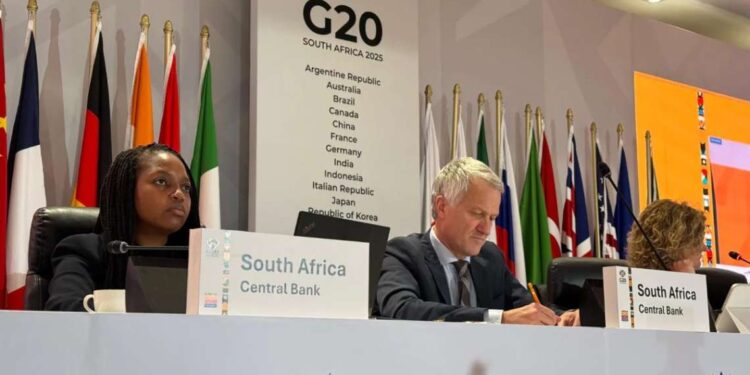The United Kingdom has stepped forward with major funding to supercharge artificial intelligence development across Africa, backing the G20’s ambitious “AI for Africa Initiative” with concrete projects that could change how technology tackles the continent’s biggest challenges.
At the G20 summit in Cape Town, UK officials announced two significant projects worth millions in funding. The moves support South Africa’s presidency priorities and position African voices at the center of global AI conversations.
UK Creates £2.75 Million Evidence Alliance for AI Social Impact
The UK Foreign, Commonwealth & Development Office partnered with Canada’s International Development Research Centre and Community Jameel to launch the AI Evidence Alliance for Social Impact (AEASI). This £2.75 million program focuses on proving which AI tools actually work in real African communities.
The FCDO contributes £1 million as part of a broader $7.5 million collaboration with Google.org. Two respected research organizations will implement the program: the Abdul Latif Jameel Poverty Action Lab (J-PAL) and IDInsight.
The alliance will test AI solutions across Africa and Asia to identify what delivers measurable results. Local researchers will lead studies while building capacity to evaluate AI projects independently. The program also provides practical guidance for policymakers deciding where to invest limited resources.
“This ensures AI investments in low- and middle-income countries are evidence-based, inclusive, and aligned with development priorities,” according to the UK government announcement.
University of Cape Town Gets New AI Safety Hub
The UK also announced support for the African Hub for AI Safety, Security and Peace at the University of Cape Town. This becomes the 12th global AI lab and the second in South Africa, developed under the UK-Canada AI for Development program.
The hub will build capacity for African researchers, policymakers, and communities to detect and address AI-related problems. It develops governance frameworks and technical tools designed specifically for African contexts while ensuring solutions reflect local priorities.
The facility positions African experts in global AI rule-making processes. This addresses a critical gap where AI policies often get made without input from regions most affected by the technology.
South Africa Leads G20 Digital Transformation Focus
South Africa assumed the G20 presidency in December 2024 and made digital transformation a central theme. The country’s leadership comes just five years before the UN’s 2030 sustainable development deadline.
The AI for Africa Initiative draws on the African Union AI Strategy and AU Data Governance Framework. South Africa will host an AI for Africa conference connecting G20 and African countries to mobilize international support for the initiative.
AI Minister Kanishka Narayan explained the UK’s approach: “AI has the power to fuel growth, build trust and transform lives, and every country should share in that. That’s why we’re backing African-led innovation that puts people first, tackles real-world challenges, and builds global resilience.”
Research Organizations Bring Proven Track Record
The organization, based at MIT but with an African office at the University of Cape Town, has conducted hundreds of randomized evaluations across sub-Saharan Africa. Their work focuses on using scientific evidence to inform poverty reduction policies.
Community Jameel, the philanthropic arm of the Jameel family business empire, has supported development research for years. The organization funds initiatives across education, healthcare, and economic development in emerging markets.
IDInsight complements this expertise with data-driven decision making tools for development organizations and governments across Africa and Asia.
African AI Market Shows Strong Growth Potential
Africa’s AI market is projected to grow from $4.5 billion in 2025 to $16.5 billion by 2030, according to Statista research. This growth creates opportunities for locally-developed solutions that address specific African challenges.
The continent faces unique development needs around agriculture, healthcare access, education, and financial inclusion. AI tools designed elsewhere often fail to account for local languages, infrastructure limitations, or cultural contexts.
Programs Address Global AI Governance Gaps
Current AI governance discussions often happen without meaningful African participation. The new initiatives aim to change this by building local expertise and creating platforms for African voices in international forums.
The African Hub for AI Safety will produce open-access research and develop risk detection tools in multiple African languages. It also supports training for students and policymakers who will shape AI policies across the continent.
















